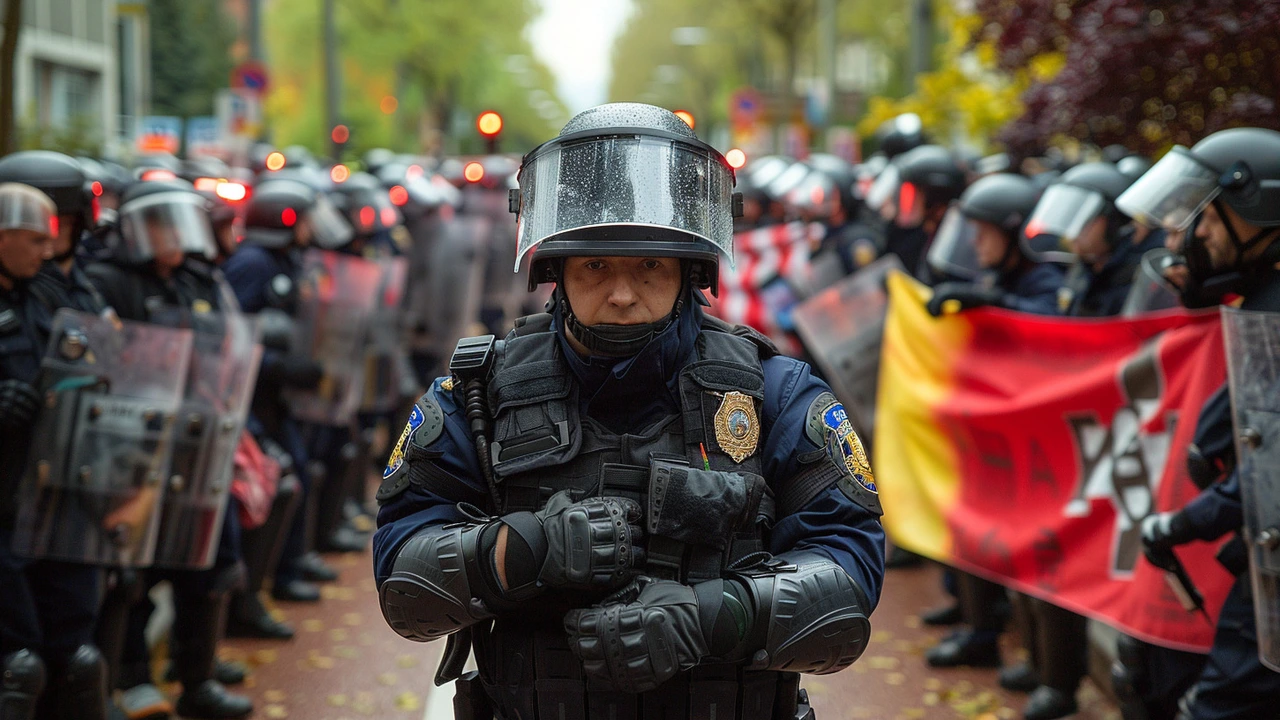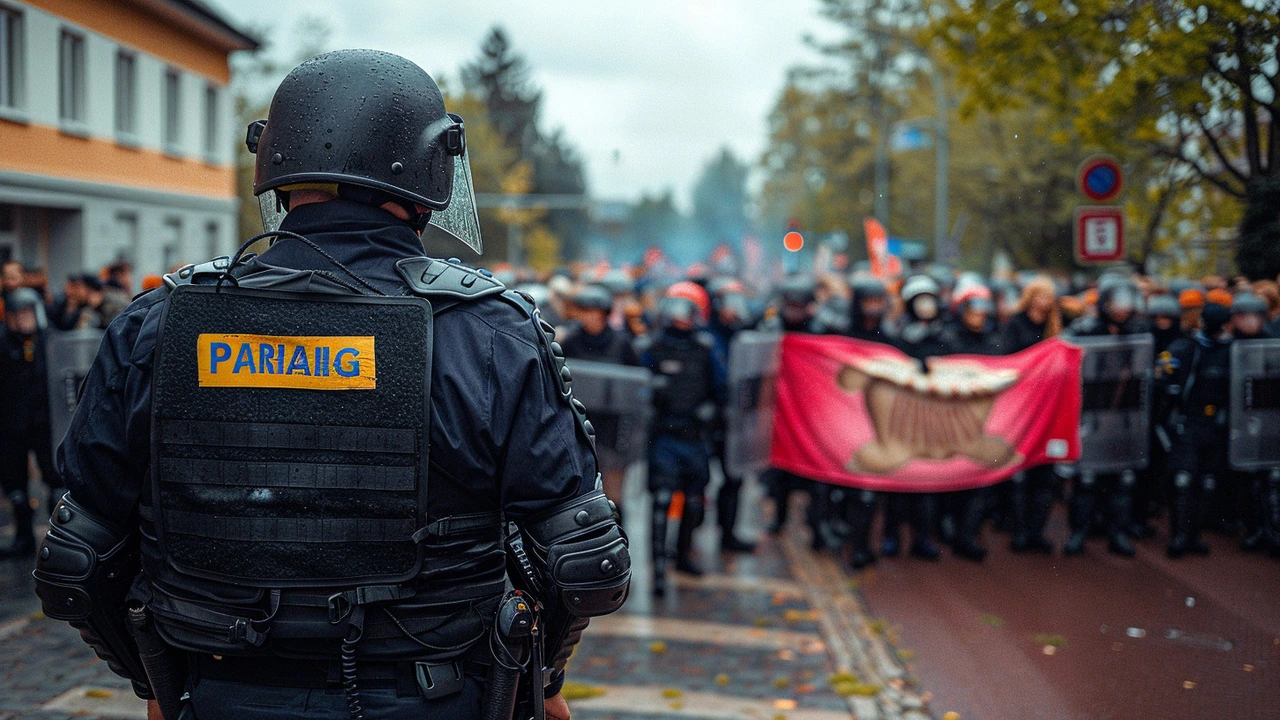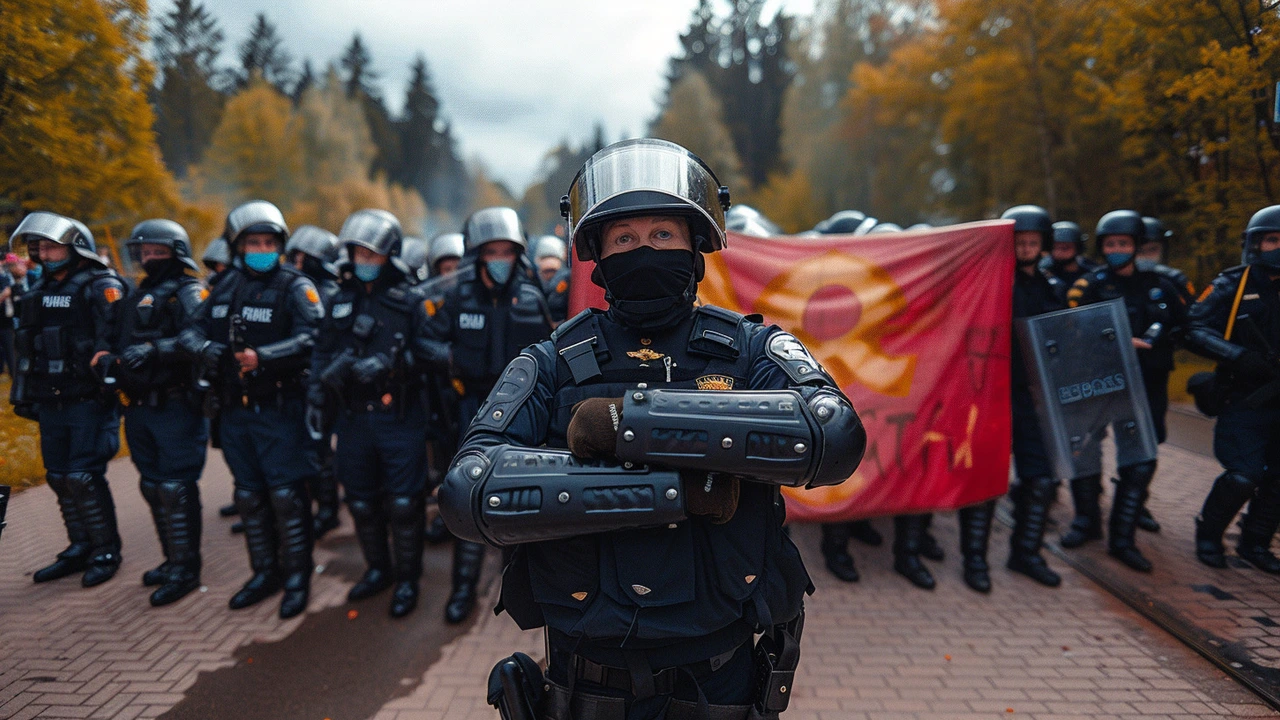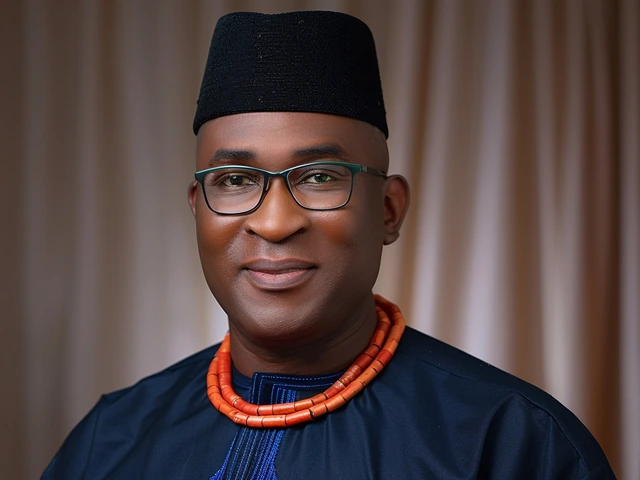Background of the Incident
The tragic killing of a German policeman during a routine traffic stop has recently thrown fuel onto the already smoldering fires of the German political landscape. This shocking event transpired in the eastern state of Saxony and involved a 22-year-old German citizen of Turkish descent. The young suspect, who holds a notable criminal record, has become a polarizing figure, drawing intense focus on the recurring controversial issues of crime and immigration in Germany. The incident has consequently intensified the spotlight on these concerns, which have also emerged as principal talking points in the run-up to the European Union parliamentary elections scheduled for May 23-26.
Political Repercussions
In the aftermath of the policeman's death, political tensions in Germany have reached fever pitch. The far-right Alternative for Germany (AfD) party wasted no time in leveraging the incident to attack Chancellor Angela Merkel's government's management of immigration and crime. The AfD, which has consistently been critical of the government's policies, argues strongly for implementing stricter border controls. They call for harsh penalties for individuals with criminal records, particularly those of immigrant backgrounds, arguing that the current laws are too lenient and fail to adequately protect German citizens.
On the other side of the spectrum, Chancellor Merkel and her government promote a more balanced and humane approach. They advocate for security improvements, but also stress the importance of upholding human rights and fostering social integration. They argue that the challenges associated with immigration can't be solved solely through tougher laws and increased border controls. Instead, they emphasize the importance of comprehensive strategies that also tackle the underlying social and economic issues that contribute to crime and migration in the first place.

The Social Media Debate
Adding another layer of complexity to the situation is the role of social media in shaping public opinion and potentially inciting violence. Many have argued that platforms like Facebook and Twitter serve as hotbeds for hate speech and misinformation, which can escalate tensions and encourage extremist actions. The AfD has been accused of using inflammatory rhetoric on these platforms to stir up anti-immigrant sentiment and exploit public fears about crime. Their critics suggest that this strategy is not just about winning votes but is also dangerously contributing to a more divided and hostile society.
The government, in response, is pushing for stricter regulations on social media companies. They advocate for measures to curb the spread of extremist content and ensure that these platforms act responsibly in moderating harmful speech. Proponents of these regulations argue that while freedom of expression is paramount, it should not come at the cost of public safety and societal harmony.
Impact on EU Elections
The timing of this incident could not be more critical, given the impending EU parliamentary elections. The issues of crime and immigration are expected to play a significant role in these elections. The AfD's focus on these topics, coupled with their criticism of Merkel's government, seems poised to resonate with a segment of voters who are frustrated with the status quo. However, it remains to be seen how the broader electorate will respond to their hardline stance.
Meanwhile, Merkel's government must navigate this politically charged atmosphere carefully. They need to reassure the public of their commitment to safety while also maintaining their principles regarding human rights and social inclusion. This delicate balance will be crucial in securing their position in the elections and shaping the future direction of both German and EU policies.

Conclusion
In the wake of the tragic killing of a German policeman, Germany finds itself at a crossroads. The intense debate sparked by this incident underscores the deep divisions within the country on how best to handle immigration and ensure public safety. As the EU parliamentary elections approach, these issues will undoubtedly remain at the forefront of political discourse. The outcome of these elections will not only impact Germany but will also send ripples throughout the European Union, potentially reshaping policies and alliances for years to come.






Oh wow, another tragic death turned into a political football. Let me guess-AfD is now claiming this was caused by too many kebabs and not enough German flags? The real tragedy is how easily people forget that crime isn't tied to nationality, it's tied to opportunity, trauma, and systemic neglect. But sure, let’s blame the immigrant kid and call it justice.
This is why we need better data, not just outrage. Most immigrants in Germany are law-abiding. The real issue is underfunded social services in certain regions. If we invested in youth programs, mental health, and job training instead of building more detention centers, we’d see crime drop. It’s not rocket science.
The officer’s family must be devastated. No one deserves to die doing their job. But reducing this to a political slogan erases the humanity of everyone involved-the suspect, the officer, the community caught in the middle. We need compassion, not clickbait.
I’ve worked with youth in Saxony. Many of these kids aren’t criminals by nature-they’re lost. The system fails them before they ever see a cop. Tough laws won’t fix that. What works? Mentors. Stable housing. A chance. Not fear.
The AfD’s rhetoric is not just politically convenient-it’s morally corrosive. They weaponize grief to justify bigotry, and the media obliges by amplifying their lies. This isn’t politics. It’s psychological manipulation dressed as policy.
It is imperative that we approach this matter with the utmost gravity and procedural rigor. The sanctity of public service must be preserved, yet the rule of law must be applied equitably, irrespective of origin or background. To conflate criminality with ethnicity is to abandon the foundational principles of civil society.
We can do better 💪 Let’s stop blaming people and start fixing systems! Education. Jobs. Community. That’s the real solution. 🌍❤️
people are scared and politicians are cashing in
So the kid had a record. Cool. So did half the guys in my high school. Guess what? Most of them didn’t become killers. Guess what else? The cop didn’t die because he was German. He died because someone lost control. Blame the system, not the passport.
This isn’t about immigration. It’s about broken communities. We need more teachers, not more police. More counselors, not more cages. Stop turning grief into a campaign ad.
We all want safety. But fear doesn’t build bridges. Understanding does. Let’s not lose our humanity in the noise 🙏
everything is connected. people hurt. people hurt others. we need to heal, not punish
So the far right is suddenly the guardians of public safety? Funny how they never cared about police funding until a cop died. Now suddenly they’re the heroes. Convenient.
stop the hate feed the kids 🤝